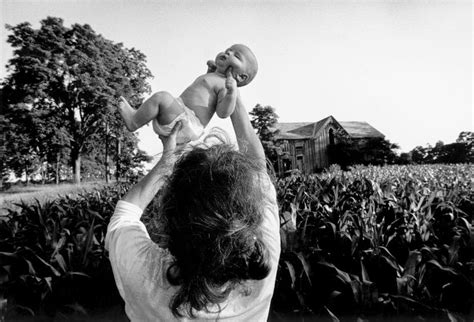A Quote by Frederick Buechner
Justice is the grammar of things. Mercy is the poetry of things.
Related Quotes
People who think that grammar is just a collection of rules and restrictions are wrong. If you get to like it, grammar reveals the hidden meaning of history, hides disorder and abandonment, links things and brings opposites together. Grammar is a wonderful way of organising the world how you'd like it to be.
There is a strength, a power even, in understanding brokenness, because embracing our brokenness creates a need and desire for mercy, and perhaps a corresponding need to show mercy. When you experience mercy, you learn things that are hard to learn otherwise. You see things you can't otherwise see; you hear things you can't otherwise hear. You begin to recognize the humanity that resides in each of us.
I do not accept the fact that conditions that prevent people from attaining their eternal destiny were born into them without any ability to control. That is contrary to the Plan of Salvation, and it is contrary to the justice and mercy of God. It's contrary to the whole teaching of the Gospel of Jesus Christ, which expresses the truth that by or through the power and mercy of Jesus Christ we will have the strength to do all things. That includes resisting temptation. That includes dealing with things that we're born with, including disfigurements, or mental or physical incapacities.
When we have entered into divine covenants, the Holy Ghost is our comforter, our guide, and our companion. The fruits of the Holy Spirit are "the peaceable things of immortal glory; the truth of all things; that which quickeneth all things, which maketh alive all things; that which knoweth all things, and hath all power according to wisdom, mercy, truth, justice, and judgment" (Moses 6:61). The gifts of the Holy Spirit are testimony, faith, knowledge, wisdom, revelations, miracles, healing, and charity, to name but a few.
Poetry has an indirect way of hinting at things. Poetry is feminine. Prose is masculine. Prose, the very structure of it, is logical; poetry is basically illogical. Prose has to be clear-cut; poetry has to be vague - that's its beauty, its quality. Prose simply says what it says; poetry says many things. Prose is needed in the day-to-day world, in the marketplace. But whenever something of the heart has to be said, prose is always found inadequate - one has to fall back to poetry.
Noah is the battle of justice versus mercy. In Genesis it says that Noah was righteous in his times. You think you sort of know what righteous means, you know, if you listen to a lot of Bob Marley. According to all the biblical scholars we talked to, righteousness is the proper balance of justice and mercy. If you think of that, as a parent, you know that if you have too much justice and you're too strict, you destroy a child. If you have too much mercy, as a parent, you destroy a child as well. A big part of this movie is Noah finding mercy for man.
The essence of justice is mercy. Making a child suffer for wrong-doing is merciful to the child. There is no mercy in letting the child have its own will, plunging headlong to destruction with the bits in its mouth. There is no mercy to society nor to the criminal if the wrong is not repressed and the right vindicated. We injure the culprit who comes up to take his proper doom at the bar of justice, if we do not make him feel that he has done a wrong thing. We may deliver his body from the prison, but not at the expense of justice nor to his own injury.
In high school, in 1956, at the age of sixteen, we were not taught "creative writing." We were taught literature and grammar. So no one ever told me I couldn't write both prose and poetry, and I started out writing all the things I still write: poetry, prose fiction - which took me longer to get published - and non-fiction prose.






































